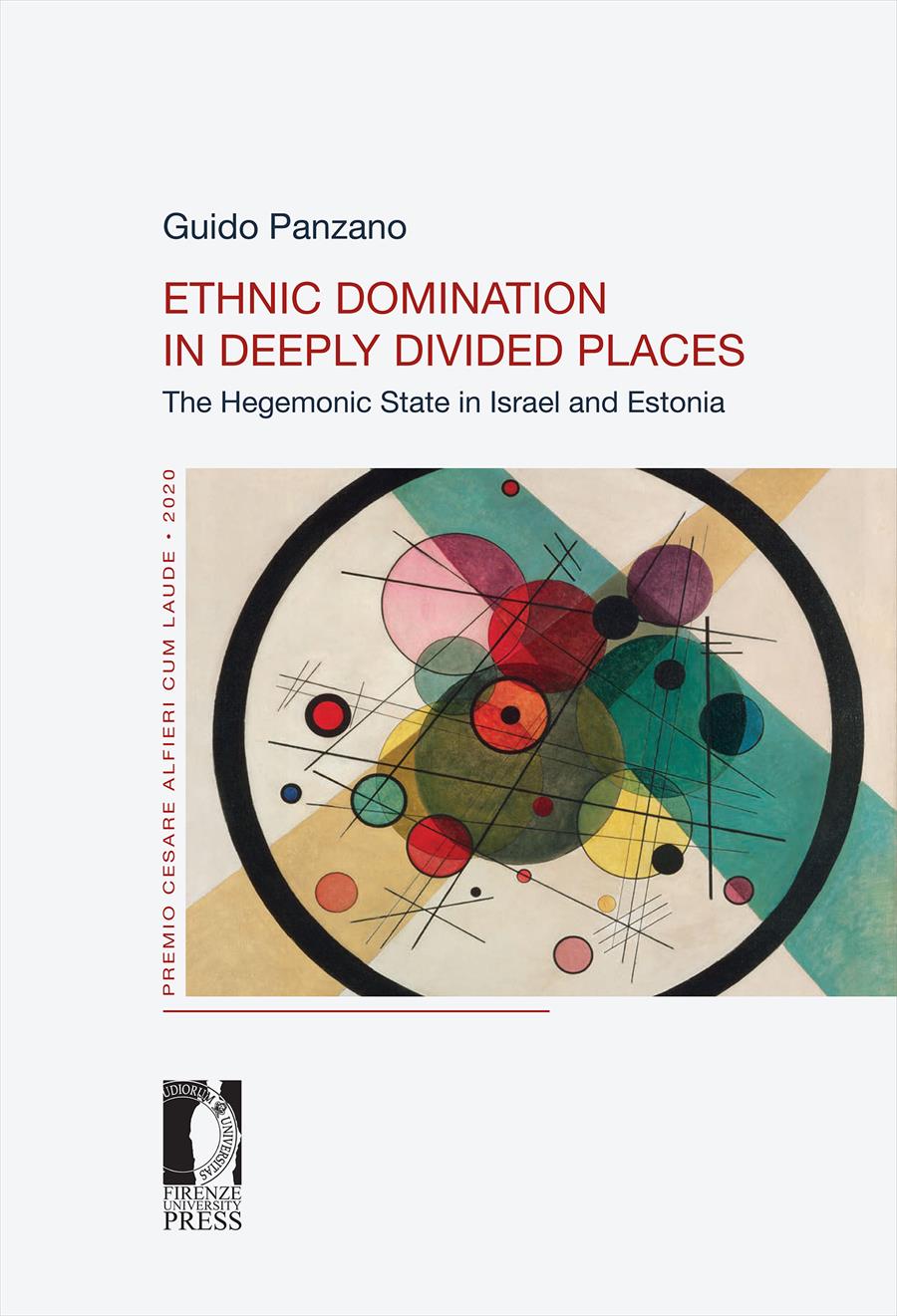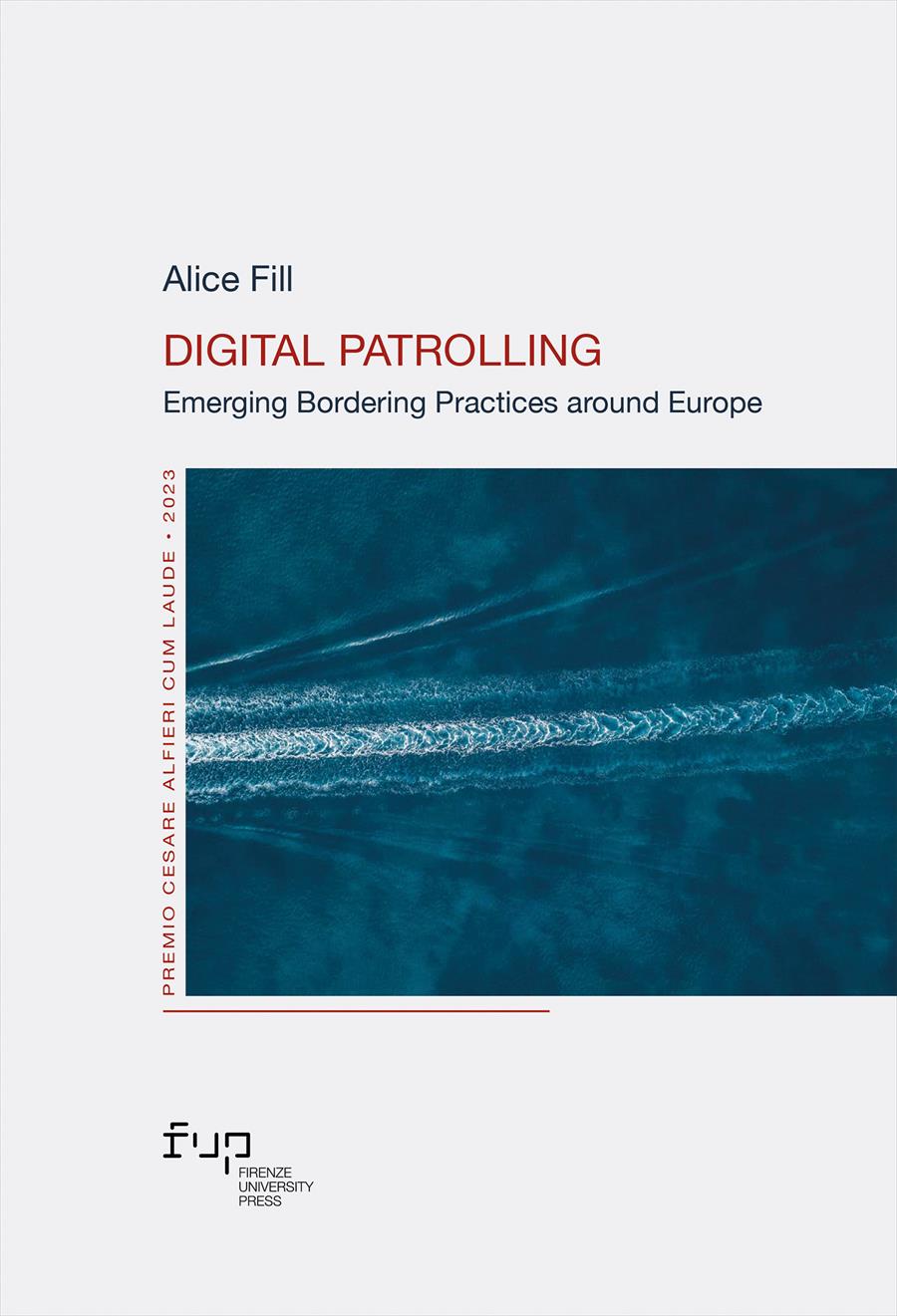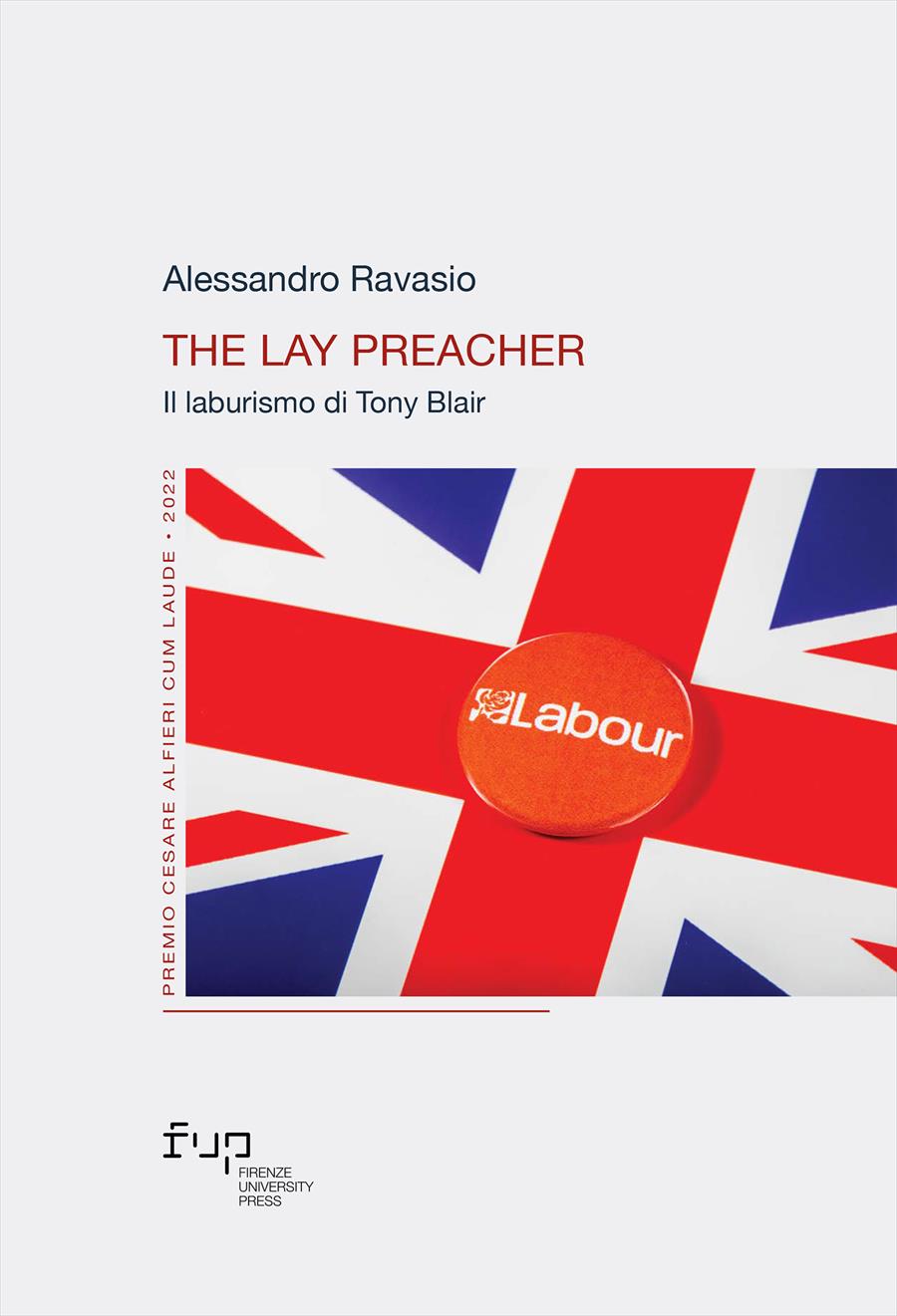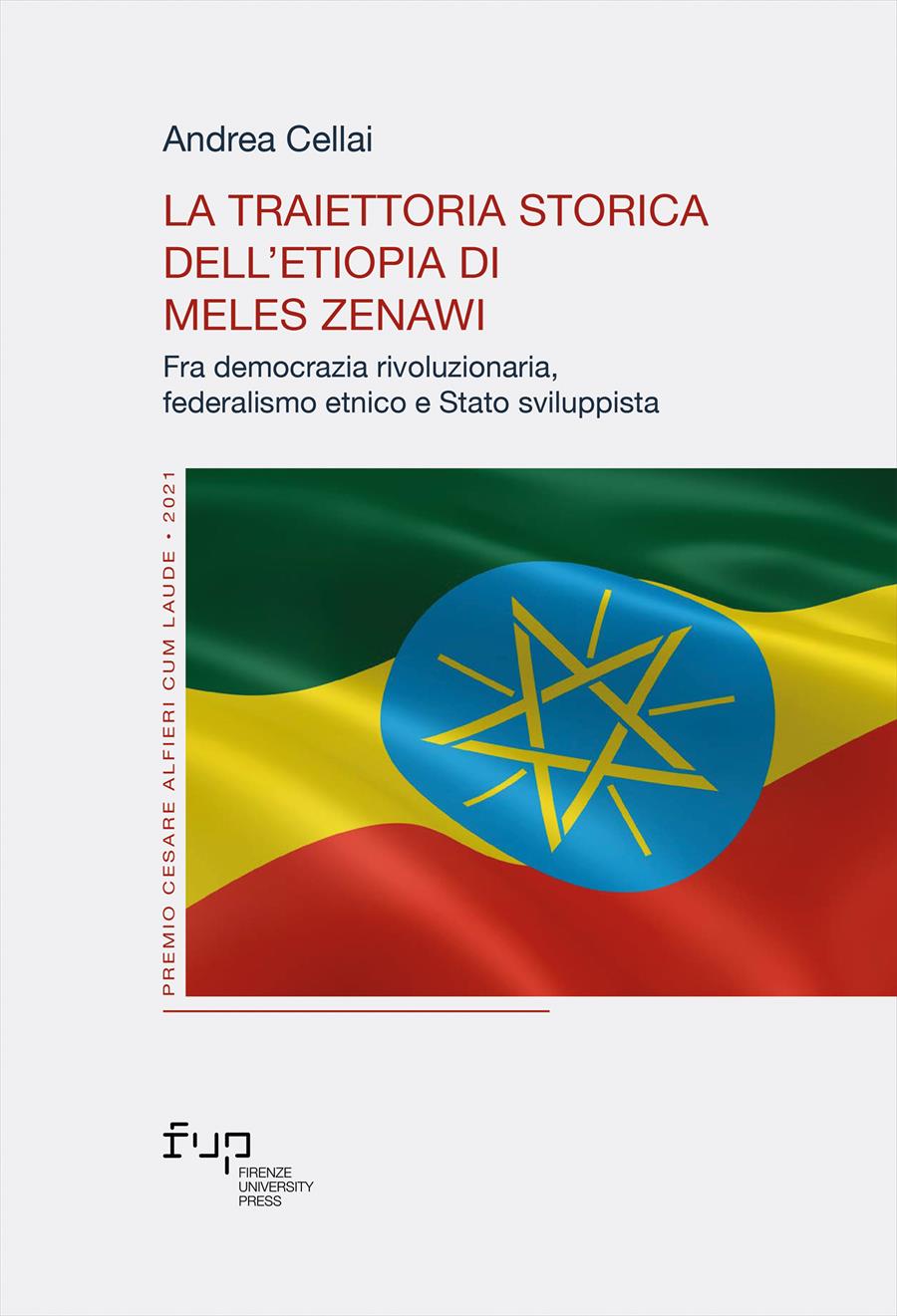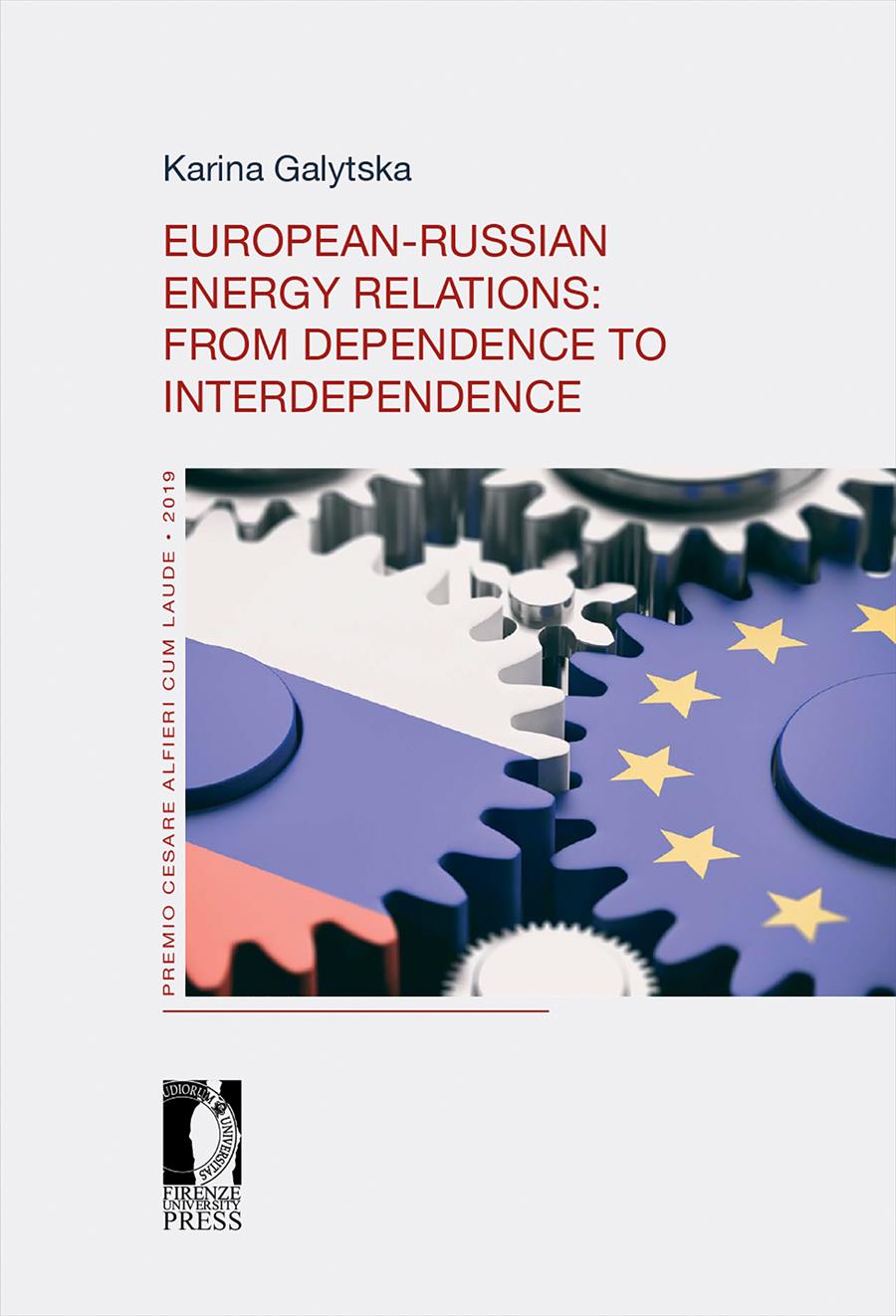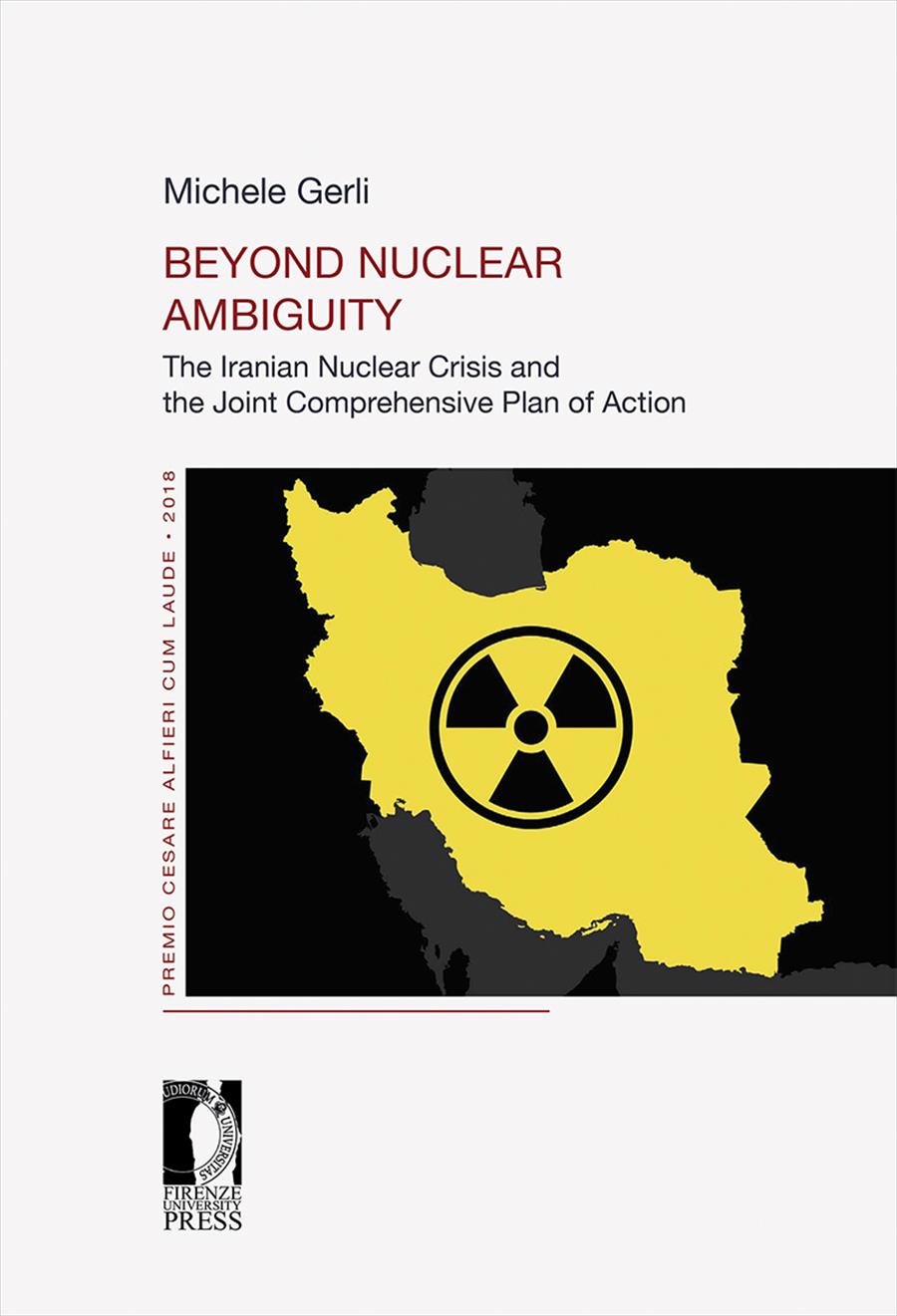Ethnic Domination in Deeply Divided Places
The Hegemonic State in Israel and Estonia
- Guido Panzano,
This volume examines the concept of ethnic domination and its manifestations in Israel (within the Green Line) and Estonia. Ethnic domination is a method of managing ethnic differences in multiethnic contexts through asymmetrical power relations, in accordance with an ethnonationalist ideology, whereby a group is subordinated to another holding the power, albeit not intent to directly eliminate the subaltern. The volume compares the predicament of Israeli Palestinian citizens and Estonian Russian-speakers in different dimensions (state-citizenship, government-parliament, parties). Also, the analysis explains the divergent trajectories of the cases: the tightening of the condition of Israeli Palestinian citizens and the democratization of ethnic politics in Estonia.
- Keywords:
- Israel,
- Estonia,
- ethnic minorities,
- democracy,
- political regime,
- DOI: 10.36253/978-88-5518-480-9
- Series: Premio Cesare Alfieri «Cum Laude»
- Scientific Board
- Language: Italian
- Subjects: Political Science
ULB, Free University of Brussels, Belgium - ORCID: 0000-0002-7974-1244
- Adalah, The Legal Center for Arab Minority Rights in Israel. 2018. “Position Paper: Proposed Basic Law: Israel – The Nation State of the Jewish People”. 16 July. <https://www.adalah.org/uploads/uploads/Adalah%20Position%20Paper%20 -%20Basic%20Law%20Jewish%20Nation%20State%20-%20ENGLISH%20-%20 15072018%20-%20FINAL.pdf> (2022-01-11).
- Agarin, T. 2013. “Resident aliens? Explaining minority disaffection with democratic politics in the Baltic States”. Ethnopolitics 12 (4): 331–51.
- Agarin, T., Regelmann, A. C. 2012. “Which is the only game in town? Minority rights issues in Estonia and Slovakia during and after EU accession”. Perspectives on European Politics and Society 13 (4): 443–61.
- Ammassari, G. P., Montanari, A. edited by. 2003. La fine del sistema sovietico e i paesi baltici: il caso dell’Estonia, vol. 5. Milano: FrancoAngeli.
- Anderson, J. 2016. “Ethnocracy: Exploring and extending the concept”. Cosmopolitan Civil Societies: An Interdisciplinary Journal 8 (3): 1.
- Arendt, H. (1951) 1973. The origins of totalitarianism, vol. 244. Boston: Houghton Mifflin Harcourt.
- Attwell, K. 2016. “Ethnocracy without groups: Conceptualising ethnocratiser states without reifying ethnic categories”. Ethnopolitics 15 (3): 303–18.
- Avineri, S. (1981) 2017. The making of modern Zionism: The intellectual origins of the Jewish state. London: Hachette UK.
- Barth, F. (1969) 1998. Ethnic Groups and Boundaries: The Social Organization of Culture Difference. Long Grove: Waveland Press.
- Basta, K., McGarry, J., Simeon, R. edited by. 2015. Territorial pluralism: Managing difference in multinational states. Vancouver: University of British Columbia Press.
- Bellucci, P., Segatti, P. 2011. Votare in Italia. Dall’appartenenza alla scelta. Bologna: il Mulino.
- Benveniśtî, M. 2000. Sacred landscape: The buried history of the Holy Land since 1948. Berkeley: University of California Press.
- Berent, M. 2010. “The ethnic democracy debate: how unique is Israel?”. Nations and Nationalism 16 (4): 657–74.
- Betz, H. G. 1994. Radical right-wing populism in Western Europe. Berlin: Springer.
- Bligh, A. 2004. The Israeli Palestinians: an Arab minority in the Jewish state. London: Routledge.
- Bogaards, M. 2009. “How to classify hybrid regimes? Defective democracy and electoral authoritarianism”. Democratization 16 (2): 399–423.
- Bogaards, M. 2014. Democracy and social peace in divided societies: exploring consociational parties. Berlin: Springer.
- Brubaker, R. 1996. Nationalism reframed: Nationhood and the national question in the new Europe. Cambridge: Cambridge University Press.
- Bogaards, M. 2014. Democracy and social peace in divided societies: exploring consociational parties. Berlin: Springer.
- Brubaker, R. 2004. Ethnicity without groups. Cambridge, Massachusetts: Harvard University Press.
- Brubaker, R. 2009. Ethnicity, race, and nationalism. Annual Review of Sociology, 35, 21–42.
- Chandra, K. 2011. “What is an ethnic party?”. Party Politics 17 (2): 151–69.
- Cheskin, A. 2015. “Identity and integration of Russian speakers in the Baltic States: A framework for analysis”. Ethnopolitics 14 (1): 72–93.
- Choudhry, S. edited by. 2008. Constitutional design for divided societies: integration or accommodation?. Oxford: Oxford University Press.
- Cianetti, L. 2014. “Granting local voting rights to non-citizens in Estonia and Latvia: The conundrum of minority representation in two divided democracies”. JEMIE 13: 86.
- Cianetti, L. 2015. “Integrating minorities in times of crisis: Issues of displacement in the Estonian and Latvian integration programs”. Nationalism and Ethnic Politics 21 (2): 191–212.
- Cianetti, L. 2018. “Consolidated technocratic and ethnic hollowness, but no backsliding: reassessing Europeanisation in Estonia and Latvia”. East European Politics 34 (3): 317–36.
- Cianetti, L., Nakai, R. 2017. “Critical Trust in European Institutions: The Case of the Russian-Speaking Minorities in Estonia and Latvia”. Problems of Post-Communism 64 (5): 276–90.
- Collier, D., Gerring, J. edited by. 2009. Concepts and Method in Social Science: The Tradition of Giovanni Sartori. London: Routledge.
- Collier, D., Levitsky, S. 1997. “Democracy with adjectives: Conceptual innovation in comparative research”. World politics 49 (3): 430–51.
- Commercio, M. E. 2008. “Systems of partial control: ethnic dynamics in post-Soviet Estonia and Latvia”. Studies in Comparative International Development 43 (1): 81–100.
- Conforti, Y. 2014. “Ethnicity and boundaries in Jewish nationalism”. In Nationalism, Ethnicity and Boundaries: Conceptualising and Understanding Identity through Boundary Approaches, edited by J. Jackson, L. Molokotos-Liederman, 154–74. London: Routledge.
- Coppedge, M. 2012. Democratization and research methods. Cambridge: Cambridge University Press.
- Coppedge, M., Gerring, J., Knutsen, C. H., Krusell, J., Medzihorsky, J., Pernes, J., … Lindberg, S. I. 2019. “The Methodology of “Varieties of Democracy”(V-Dem)”. Bulletin of Sociological Methodology/Bulletin de Méthodologie Sociologique 143 (1): 107–33.
- Cordell, K., Wolff, S. 2004. Ethnopolitical Encyclopaedia of Europe. London: Palgrave Macmillan.
- Cospito, G. 2016. “Egemonia/egemonico nei “Quaderni del carcere” (e prima)”. International Gramsci Journal 2 (1): 49–88.
- Dahl, R. A. 1971. Polyarchy: Participation and Opposition. London-New Heaven: Yale University Press.
- Danel, A. 2009. “A methodological critique of the concept of ethnic democracy”. The Journal of Israeli History 28 (1): 37–54.
- Declaration of Independence of the State of Israel. 1948. Text in English from the government archive. <https://main.knesset.gov.il/en/about/pages/declaration.aspx> (2022-01-11).
- Diamond, L. 2002. “Thinking about hybrid regimes”. Journal of Democracy 13 (2): 163–75.
- Diamond, L., Linz, J. J., Lipset, S. 1990. Politics in developing countries. Boulder: Lynne Rienner Publishers.
- Dieckhoff, A. 1993–2003. The invention of a nation: Zionist thought and the making of modern Israel. New York: Columbia University Press.
- Dieckhoff, A. 1999. “Démocratie et ethnicité en Israël”. Sociologie et sociétés 31 (2): 163–73.
- Dieckhoff, A. 2002. “Israël à l’aube du 21e siècle: entre néosionisme et postsionisme”. Raisons politiques 3: 135–56.
- Dieckhoff, A. 2005. “Quelle citoyenneté dans une démocratie ethnique?”. Confluences Méditerranée 3: 69–80.
- Dieckhoff, A. 2015. “Israël: une société multiculturelle sans multiculturalisme”. Le Débat 4: 54–64.
- Don-Yihya, E. 1999. Religion and Political Accomodation in Israel, vol. 9. Jerusalem: Floersheimer Institute for Policy Studies Limited.
- Dowty, A. 1998. “Consociationalism and ethnic democracy: Israeli Arabs in comparative perspective”. Israel Affairs 5 (2–3): 169–82.
- Dowty, A. 1998a. The Jewish State: A century later, updated with a new preface. Berkeley: University of California Press.
- Dowty, A. 1999. “Is Israel Democratic? Substance and Semantics in the ‘Ethnic Democracy’ Debate”. Israel Studies 4 (2): 1–15.
- Duvold, K., Berglund, S. 2014. “Democracy between ethnos and demos: Territorial identification and political support in the Baltic states”. East European Politics and Societies: 28 (2): 341–65.
- Edelman, M. 1994. Courts, politics, and culture in Israel. Charlottesville: University of Virginia Press.
- Elazar, D. J. 1987. Exploring Federalism. University of Alabama Press.
- Foucault, M. (1971) 1977. “Nietzsche, la genealogia, la storia”. In Microfisica del potere. Interventi politici. Torino: Einaudi editore.
- Freeden, M. (1998) 2000. Ideologie e teoria politica. Bologna: il Mulino.
- Freedom House. 2018. “Israel Profile”. <https://freedomhouse.org/country/israel/ freedom-world/2018> (2022-01-11).
- Freedom House 2018a. “Estonia Profile”. <https://freedomhouse.org/country/estonia/ freedom-world/2018> (2022-01-11).
- Gavison, R. 1999. “Jewish and democratic? A rejoinder to the ‘ethnic democracy’ debate”. Israel Studies 4 (1): 44–72.
- Geddes, B. 2003. Paradigms and sand castles: Theory building and research design in comparative politics. Ann Arbor: University of Michigan Press.
- Ghanem, A. A. 1998. “State and minority in Israel: The case of ethnic state and the predicament of its minority”. Ethnic and racial studies 21 (3): 428–48.
- Ghanem, A. A., Rouhana, N. 2001. “Citizenship and the parliamentary politics of minorities in ethnic states: The Palestinian citizens of Israel”. Nationalism and Ethnic Politics 7 (4): 66–86.
- Ghanem, A. A., Rouhana, N., Yiftachel, O. 1998. “Questioning ‘ethnic democracy’: A response to Sammy Smooha”. Israel Studies 3 (2): 253–67.
- Guelke, A. 2012. Politics in deeply divided societies. Cambridge: Polity Press.
- Guelke, A. edited by. 2004. Democracy and ethnic conflict: Advancing peace in deeply divided societies. Berlin: Springer.
- Guelke, A., Tournon, J. edited by. 2012. The Study of Ethnicity and Politics: Recent Analytical Developments. Leverkusen: Verlag Barbara Budrich.
- Gurr, T. R. (1993) 1995. Minorities at risk. A global view of ethnopolitical conflicts. Washington D.C.: United States Institute for Peace Press.
- Hazan, R. Y. 1999. “Religion and politics in Israel: The rise and fall of the consociational model”. Israel Affairs 6 (2): 109–37.
- Hazan, R. Y. 2004. “Israel and the consociational model: Religion and class in the Israeli party system, from consociationalism to consensualism to majoritarianism”. In Party Elites in Divided Societies: Political Parties in Consociational Democracy, edited by K. Deschouwer, K. R. Luther, 169–70. London: Routledge.
- Herzl, T. (1896) 2003. Lo stato ebraico. Genova: Il Melangolo.
- Hiden, J., Salmon, P. 2014. The Baltic nations and Europe: Estonia, Latvia and Lithuania in the twentieth century. London: Routledge.
- Hirschl, R. 2005. “The question of case selection in comparative constitutional law”. The American Journal of Comparative Law 53 (1): 125–56.
- Hobsbawm, E. J. (1991) 2012. Nations and nationalism since 1780: Programme, myth, reality. Cambridge: Cambridge university press.
- Horowitz, D. L. 1985. Ethnic Groups in Conflict. Berkeley: University of California Press.
- Horowitz, D. L. 1993. The challenge of ethnic conflict: democracy in divided societies. Journal of democracy 4(4): 18-38.
- Horowitz, D. L. 2001. “The Northern Ireland Agreement: Clear, Consociational, and Risky”. In Northern Ireland and the Divided World: the Northern Ireland Conflict and the Good Friday Agreement in Comparative Perspective, edited by J. McGarry, 89–108. Oxford: Oxford University Press.
- Hughes, J. 2005. “‘Exit’ in deeply divided societies: regimes of discrimination in Estonia and Latvia and the potential for Russophone migration”. JCMS: Journal of Common Market Studies 43 (4): 739–62.
- Huntington, S. P. 1993. The third wave: Democratization in the late twentieth century, vol. 4. Norman: University of Oklahoma Press.
- Huntington, S. P. 1997. The Clash of Civilizations and the Remaking of World Order. Delhi: Penguin Books India.
- Hylland, E. T. 1993. Ethnicity and Nationalism: Anthropological Perspective. London: Pluto Press.
- Jabareen, H. 2014. “Hobbesian Citizenship: How the Palestinians Became a Minority in Israel”. In Multiculturalism and Minority Rights in the Arab World, edited by W. Kymlicka, E. Pföstl, 189–218. Oxford: Oxford University Press.
- Jabareen, H. 2018. “The Origins of Racism and the new Basic Law: Jewish Nation-State”. Verfassungsblog, 11 November, 2018. <https://verfassungsblog.de/the-origins-ofracism-and-the-new-basic-law-jewish-nation-state/> (2022-01-11).
- Jamal, A. 2002. “Beyond ‘ethnic democracy’: State structure, multicultural conflict and differentiated citizenship in Israel”. New Political Science 24 (3): 411–31.
- Jamal, A. 2005. “On the morality of Arab collective rights in Israel”. Adalah’s Newsletter 12: 1–8.
- Jamal, A. 2007. “Nationalizing states and the constitution of ‘hollow citizenship’: Israel and its Palestinian citizens”. Ethnopolitics 6 (4): 471–93.
- Jamal, A. 2011. Arab Minority Nationalism in Israel: The Politics of Indigeneity. London: Routledge.
- Jamal, A. 2018. “Mechanisms of Governmentality and Constructing Hollow Citizenship”. In Israel and Its Palestinian Citizens. Ethnic Privileges in the Jewish State, edited by N. Rouhana, 159–90. Cambridge: Cambridge University Press.
- Järve, P. 2000. “Ethnic democracy and Estonia: application of Smooha’s model”. ECMI working paper 7. <https://www.ecmi.de/fileadmin/redakteure/publications/pdf/ working_paper_7.pdf> (2021-01-11).
- Järve, P. 2005. “Re-Independent Estonia”. In The fate of ethnic democracy in postcommunist Europe, edited by S. Smooha, P. Järve, 60–79. Budapest: Local Government and Public Service Reform Initiative.
- Järve, P. 2009. “Estonian citizenship: Between ethnic preferences and democratic obligations”. In Citizenship Policies in the New Europe: Expanded and Updated Edition, edited by R. Bauböck, B. Perchinig, W. Sievers, 39–60. Amsterdam: Amsterdam University Press.
- Järve, P., Poleshchuk, V. 2010. “Country Report: Estonia”. EUDO Citizenship Observatory. <https://cadmus.eui.eu/bitstream/handle/1814/19611/Estonia2010. pdf?sequence=1> (2021-01-11).
- Jenkins, R. P. (1997) 2008. Rethinking Ethnicity: Arguments and Explorations. New York: Sage.
- Johns, M. 2002. “Assessing risk assessment: A Baltic test”. Nationalism and Ethnic Politics 8 (1): 105–28.
- Kaufmann, E. P. 2004. Rethinking Ethnicity: Majority Groups and Dominant Minorities. London: Routledge.
- Khoury, F. 2018. “Reinforcing Ethnic Hegemony: The Social and Expressive Harms of the Jewish Nation-State Basic Law”. Palestine-Israel Journal of Politics, Economics, and Culture 23 (4): 62–9.
- Kimmerling, B. 1999. “Religion, nationalism, and democracy in Israel”. Constellations 6 (3): 339–63.
- Kirch, A., Kirch, M., Tuisk, T. 1993. “Russians in the Baltic States: To be or not to be?”. Journal of Baltic Studies 24 (2): 173–88.
- Kirch, A., Talts, M., Tuisk, T. 2004. “The identity dynamics of the Estonians and the Russians living in Estonia before and after the EU referendum”. Ethnicity studies: 33–47.
- Kitschelt, H. 1995. “Formation of party cleavages in post-communist democracies: Theoretical propositions”. Party politics 1 (4): 447–72.
- Knesset, 2018. “Basic Law: Israel – The nation-state of the Jewish People”. <https://main.knesset.gov.il/EN/News/PressReleases/Pages/Pr13978_pg.aspx> (2022-01-11).
- Kohn, H. 1944. The Idea of Nationalism: A Study in Its Origins and Background. New York: The McMullan Ian Co.
- Kokot, M. 2019. “Narva, l’ultimo Lenin d’Estonia”. La Repubblica, 26 April, 2019. <https://www.repubblica.it/dossier/esteri/eu4you-europa-progetti-parlamentoue/2019/04/26/news/l_ultimo_lenin_in_estonia_un_enclave_russa_nell_unione_ europea-223576016/> (2022-01-11).
- Kopelowitz, E. 2001. “Religious politics and Israel’s ethnic democracy”. Israel Studies 6 (3): 166–90.
- Kymlicka, W. 1995. Multicultural citizenship: A liberal theory of minority rights. Oxford: Clarendon Press.
- Kymlicka, W. 2002. “Multiculturalism and minority rights: West and East”. JEMIE 3 (4): 1–26.
- Lagerspetz, M. 2001. “Consolidation as hegemonization: The case of Estonia”. Journal of Baltic Studies 32 (4): 402–20.
- Lagerspetz, M. 2014. “Cultural autonomy of national minorities in Estonia: The erosion of a promise”. Journal of Baltic Studies 45 (4): 457–75.
- Langer, A. 1996. Aufsätze zu Südtirol: Scritti sul Sudtirolo: 1978–1995, edited by S. Baur, R. D. Sbarba. Merano: Alpha and Beta Verlag.
- Lauristin, M., Vihalemm, P. 2009. “The political agenda during different periods of Estonian transformation: External and internal factors”. Journal of Baltic Studies 40 (1): 1–28.
- Lerner, H. 2011. Making constitutions in deeply divided societies. Cambridge: Cambridge University Press.
- Levitsky, S., Way, L. A. 2010. Competitive authoritarianism: Hybrid regimes after the Cold War. Cambridge: Cambridge University Press.
- Lewis, A. 1965. Politics in West Africa. London: George Allen and Unwin.
- Lieven, A. 1993. The Baltic revolution: Estonia, Latvia, Lithuania, and the path to independence. London-New Heaven: Yale University Press.
- Lijphart, A. 1969. “Consociational democracy”. World politics 21 (2): 207–25.
- Lijphart, A. 1977. Democracy in Plural Society: A Comparative Exploration. London-New Heaven: Yale University Press.
- Lijphart, A. 1979. “Consociation and federation: conceptual and empirical links”. Canadian Journal of Political Science/Revue canadienne de science politique 12 (3): 499–516.
- Lijphart, A. 2007. Thinking about democracy: Power sharing and majority rule in theory and practice. London: Routledge.
- Limes 2018. Israele, lo Stato degli ebrei. Numero 9/18.
- Linz, J. J. (1975) 2000. Sistemi totalitari e regimi autoritari: un’analisi storico-comparativa. Soveria Mannelli: Rubbettino.
- Linz, J. J. 2006. Democrazia e autoritarismo: problemi e sfide tra XX e XXI secolo, a cura di M. Tarchi. Bologna: il Mulino.
- Linz, J. J., Stepan, A. 1996. Problems of democratic transition and consolidation: Southern Europe, South America, and post-communist Europe. Baltimora: John Hopkins University Press.
- Loewenstein, K. 1937. “Militant democracy and fundamental rights, I”. American Political Science Review 31 (3): 417–32.
- Lustick, I. 1979. “Stability in deeply divided societies: Consociationalism versus control”. World politics 31 (3): 325–44.
- Lustick, I. 1980. Arabs in the Jewish State: Israel´s Control of a National Minority. Austin: University of Texas Press.
- Mair, P. 2013. Ruling the void: The hollowing of Western democracy. London-New York: Verso Trade.
- Marko, J. 1995. Autonomie und Integration: Rechtsinstitute des Nationalitätenrechts im funktionalen Vergleich, vol. 51. Wien: Böhlau Verlag Wien.
- Martinico G. 2019. “‛A Message of Hope’: A Legal Perspective on the Reference.” In The Canadian Contribution to a Comparative Law of Secession. Legacies of the Quebec Secession Reference, edited by G. Delledonne, G. Martinico, 249–63. London: Palgrave.
- Martynova, M. 1999. “The Political Aspects of the Russian Minority in Estonia”. In Minorities in Europe – Croatia, Estonia and Slovakia, edited by S. Trifunovska, 85– 104. Berlin: Springer.
- McCulloch, A. 2014. “Consociational settlements in deeply divided societies: The liberal-corporate distinction”. Democratization 21 (3): 501–18.
- McCulloch, A. 2014a. Power-sharing and political stability in deeply divided societies. London: Routledge.
- McCulloch, A., McGarry, J. edited by. 2017. Power-sharing: Empirical and Normative Challenges. Milton Park: Taylor and Francis.
- McEvoy, J. 2013. “We forbid!”. In Power sharing in deeply divided places, edited by J. McEvoy, B. O’Leary, 259–94. Philadelphia: University of Pennsylvania Press.
- McEvoy, J., O’Leary, B. edited by. 2013. Power sharing in deeply divided places. Philadelphia: University of Pennsylvania Press.
- McGarry, J. 1998. “‘Demographic engineering’: the state-directed movement of ethnic groups as a technique of conflict regulation”. Ethnic and Racial studies 21 (4): 613–38.
- McGarry, J. 2010. “Ethnic domination in democracies”. In Political participation of minorities: a commentary on international standards and practice, edited by M. Weller, K. Nobbs, 35–71. Oxford: Oxford University Press.
- McGarry, J. O’Leary, B. 2009. “Power Shared After the Deaths of Thousands”; “Under Friendly and Less-friendly Fire”. In Consociational theory: McGarry and O’Leary and the Northern Ireland conflict, edited by R. Taylor, 15–84; 333–338. London: Routledge.
- McGarry, J. O’Leary, B. edited by. 1993. The Politics of Ethnic Conflict Regulation. London: Routledge.
- McGarry, J., Lieven, D. 1993. “Ethnic conflict in the Soviet Union and its successor states”. In Power sharing in deeply divided places, edited by J. McEvoy, B. O’Leary, 74–95. Philadelphia: University of Pennsylvania Press.
- McGarry, J., O’Leary, B. 2005. The Northern Ireland conflict: consociational engagements. Oxford: Oxford University Press.
- McGarry, J., O’Leary, B., Simeon, R. 2008. “Integration or accommodation? The enduring debate in conflict regulation”. In Constitutional design for divided societies: integration or accommodation?, edited by S. Choudhry, 41–88. Oxford: Oxford University Press.
- Merkel, W. 2004. “Embedded and defective democracies”. Democratization 11 (5): 33–58.
- Merkel, W., Puhle, H. J., Croissant, A., Eicher, C., Thiery, P. 2003. Defekte Demokratie. Wiesbaden: VS Verlag für Sozialwissenschaften.
- Mitchell, P., Evans, G., O’Leary, B. 2009. “Extremist outbidding in ethnic party systems is not inevitable: Tribune parties in Northern Ireland”. Political Studies 57 (2): 397–421.
- Morlino, L. 1998. Democracy Between Consolidation and Crisis. Parties, Groups, and Citizens in Southern Europe. Oxford: Oxford University Press.
- Morlino, L. 2005. Introduzione alla ricerca comparata. Bologna: il Mulino.
- Morlino, L., Sartori, G. 1991. La comparazione nelle scienze sociali. Bologna: il Mulino.
- Nimni, E. edited by. 2004. National-cultural autonomy and its contemporary critics. London: Routledge.
- Nordlinger, E. A. 1972. Conflict regulation in divided societies. Occasional Papers in International Affairs No. 29. Cambridge, Massachusetts: Harvard University Center for International Affairs.
- O’Leary, B. 2004. “Consociation. Encyclopedia Princetoniens”. <https://pesd. princeton.edu/node/246#:-:text=consociation> (2022-01-11).
- O’Leary, B. 2005. “Debating Consociational Politics: Normative and Explanatory Arguments”. In From power sharing to democracy: Post-conflict institutions in ethnically divided societies, vol. 13, edited by S. J. R. Noel, 3–43. Montreal: McGill-Queen’s Press.
- O’Leary, B. 2013. “Power Sharing in Deeply Divided Places: an Advocate’s Introduction”; “Power Sharing: an Advocate’s Conclusion”. In Power sharing in deeply divided places, edited by J. McEvoy, B. O’Leary, 1–67 and 386–422. Philadelphia: University of Pennsylvania Press.
- O’Leary, B., Lustick, I. Callaghy, T. M. edited by. 2001. Right-sizing the state: the politics of moving borders. Oxford: Oxford University Press.
- Osipov, A. 2015. “Non-territorial autonomy in the post-soviet space”. In Managing diversity through non-territorial autonomy: Assessing advantages, deficiencies, and risks, edited by T. H. Malloy, A. Osipov, B. Vizi, 207–28. Oxford: Oxford University Press.
- Ott, A. F., Kirch, A., Kirch, M. 1996. “Ethnic anxiety: A case study of resident aliens in Estonia (1990–1992)”. Journal of Baltic Studies 27 (1): 21–46.
- Palermo, F., Kössler, K. 2017. Comparative federalism: constitutional arrangements and case law. Londra: Bloomsbury Publishing.
- Panzano, G. 2018. “Power-sharing executives in Northern Ireland and South Tyrol: theories, structures, practices and political stability”. Diritti comparati 2: 136–84. <http://www.diritticomparati.it/rivista/power-sharing-executives-northernireland-south-tyrol-theories-structures-practices-political-stability/> (2022-01-11).
- Panzano, G. 2018a. “The Trembling of a Complex Regional Consociation: 2018 Provincial Election in South Tyrol”. ECMI Working Paper 112. <https://www.ecmi. de/fileadmin/redakteure/publications/pdf/WP__112_The_Tremblings_of_a_ Complex_Regional_Consociation.pdf> (2022-01-11).
- Pappé, I. 2000. “Israel at a crossroads between civic democracy and Jewish zealotocracy”. Journal of Palestine studies 29 (3): 33–44.
- Pappé, I. 2007. The ethnic cleansing of Palestine. London: Oneworld Publications.
- Peled, Y. 1992. “Ethnic democracy and the legal construction of citizenship: Arab citizens of the Jewish state”. American political science review 86 (2): 432–43.
- Peled, Y. 2005. “Restoring ethnic democracy: The or commission and Palestinian citizenship in Israel”. Citizenship studies 9 (1): 89–105.
- Peled, Y. 2011. “The viability of ethnic democracy: Jewish citizens in inter-war Poland and Palestinian citizens in Israel”. Ethnic and Racial Studies 34 (1): 83–102.
- Peled, Y. 2013. The challenge of ethnic democracy: the state and minority groups in Israel, Poland and Northern Ireland. London: Routledge.
- Peled, Y., Navot, D. 2005. “Ethnic democracy revisited: On the state of democracy in the Jewish state”. Israel Studies Review 20 (1): 3–27.
- Peleg, I. 2004. “Transforming Ethnic Orders to Pluralist Regimes: Theoretical, Comparative and Historical Analysis”. In Democracy and ethnic conflict: Advancing peace in deeply divided societies, edited by A. Guelke, 7–27. Berlin: Springer.
- Peleg, I. 2007. Democratizing the hegemonic state: political transformation in the age of identity. Cambridge: Cambridge University Press.
- Pennucci, N. 2017. “La teoria della Dominazione in Gramsci e Bourdieu, una lettura critica”. The Lab’s Quarterly 3: 7–32.
- Pettai, V. 2001. “Estonia and Latvia: international influences on citizenship and minority integration”. In Democratic Consolidation in Eastern Europe. Volume 2: International and Transnational Factors, edited by J. Zielonka, A. Pravda, 257–80. Oxford: Oxford University Press.
- Pettai, V. 2001a. “Estonia: positive and negative institutional engineering”. In Democratic Consolidation in Eastern Europe. Volume 1: Institutional Engineering, edited by J. Zielonka, A. Pravda, 111–39. Oxford: Oxford University Press.
- Pettai, V. 2006. “Explaining ethnic politics in the Baltic States: Reviewing the triadic nexus model”. Journal of Baltic Studies 37 (1): 124–36.
- Pettai, V. 2007. “Estonia”. European Journal of Political Research 46 (7‐8): 943–8.
- Pettai, V., Hallik, K. 2002. “Understanding processes of ethnic control: segmentation, dependency and co-optation in post-communist Estonia”. Nations and nationalism 8 (4): 505–29.
- Pettai, V., Kallas, K. 2009. “Estonia: conditionality amidst a legal straightjacket. Minority Rights in Central and Eastern Europe”. In Minority Rights in Central and Eastern Europe, edited by B. Rechel, 104–18. London: Routledge.
- Pettai, V., Kreuzer, M. 1998. “Party politics in the Baltic states: social bases and institutional context”. East European Politics and Societies 13 (1): 148–89.
- Poleshchuk, V. 2015. “Russian National Cultural Autonomy in Estonia”. In Managing diversity through non-territorial autonomy: Assessing advantages, deficiencies, and risks, edited by T. H. Malloy, A. Osipov, B. Vizi, 229–48. Oxford: Oxford University Press.
- Rabinowitz, D. 2001. “The Palestinian citizens of Israel, the concept of trapped minority and the discourse of transnationalism in anthropology”. Ethnic and Racial Studies 24 (1): 64–85.
- Rabushka, A., Shepsle, K. A. 1972. Politics in plural societies. Palo Alto: Stanford University Press.
- Reilly, B. 2001. Democracy in Divided Societies. Electoral Engineering for Conflict Management. Cambridge: Cambridge University Press.
- Rouhana, N. 1998. “Israel and its Arab citizens: predicaments in the relationship between ethnic states and ethnonational minorities”. Third world quarterly 19 (2): 277–96.
- Rouhana, N. 2018. “Decolonization as reconciliation: rethinking the national conflict paradigm in the Israeli-Palestinian conflict”. Ethnic and Racial Studies 41 (4): 643–62.
- Rouhana, N. 2018a. edited by. Israel and Its Palestinian Citizens. Ethnic Privileges in the Jewish State. Cambridge: Cambridge University Press.
- Rouhana, N., Ghanem, A. 1998. “The crisis of minorities in ethnic states: The case of Palestinian citizens in Israel”. International Journal of Middle East Studies 30 (3): 321–46.
- Rouhana, N., Sabbagh-Khoury, A. 2015. “Settler-colonial citizenship: conceptualizing the relationship between Israel and its Palestinian citizens”. Settler Colonial Studies 5 (3): 205–25.
- Sa’di, A. H. 2000. “Israel as ethnic democracy: What are the implications for the Palestinian minority?”. Arab studies quarterly 22 (1): 25–37.
- Sartori, G. 1966. “European political parties: the case of polarized pluralism”. In Political parties and political development, edited by J. LaPalombara, M. Weiner, 137–76.
- Sartori, G. (1976) 2005. Parties and party systems: A framework for analysis. Colchester: ECPR press.
- Sartori, G. 1984. Social science concepts: A systematic analysis, vol. 1. New York: Sage Publications.
- Schneckener, U., Wolff, S. 2004. Managing and Settling Ethnic Conflicts: Perspectives on Successes and Failures in Europe, Africa, and Asia. London: Hurst.
- Shafir, G., Peled, Y. 1998. “Citizenship and stratification in an ethnic democracy”. Ethnic and Racial Studies 21(3): 408–27.
- Smith, A. D. 1979. Nationalism in the Twentieth Century. Acton: Australian National University Press.
- Smith, A. D. 1986. The Ethnic Origins of Nations. Oxford: Blackwell publishing.
- Smith, A. D. 1995. “Zionism and diaspora nationalism”. Israel Affairs 2 (2): 1–19.
- Smith, A. D. 2004. “Ethnic Cores and Dominant Ethnies”. In Rethinking Ethnicity: Majority Groups and Dominant Minorities, edited by E. P. Kaufmann, 17–30. London: Routledge.
- Smith, A. D. 2013. Nationalism and Modernism. London: Routledge.
- Smith, D. J. 2002. “Narva Region within the Estonian Republic. From Autonomism to Accommodation?”. Regional and Federal Studies 12 (2): 89–110.
- Smith, D. J. 2003. “Minority rights, multiculturalism and EU enlargement: the case of Estonia”. JEMIE 14 (4): 79–113.
- Smith, D. J. 2016. “Estonia: A Model for Inter-War Europe?”. Ethnopolitics 15 (1): 89–104.
- Smith, G. 1996. “The ethnic democracy thesis and the citizenship question in Estonia and Latvia”. Nationalities Papers 24 (2): 199–216.
- Smith, G. 1999. “Transnational politics and the politics of the Russian diaspora”. Ethnic and Racial Studies 22 (3): 500–23.
- Smooha, S. 1990. “Minority status in an ethnic democracy: The status of the Arab minority in Israel”. Ethnic and racial studies 13 (3): 389–413.
- Smooha, S. 1997. “Ethnic democracy: Israel as an archetype”. Israel studies 2 (2): 198–241.
- Smooha, S. 1997a. “The viability of ethnic democracy as a mode of conflict-management: comparing Israel and Northern Ireland”. In Comparing Jewish Societies, edited by Todd M. Endelman, 267–312. Ann Arbor: University of Michigan Press.
- Smooha, S. 2001. “The model of ethnic democracy”. ECMI working paper 13. <https:// www.ecmi.de/fileadmin/redakteure/publications/pdf/working_paper_13.pdf> (2022-01-11).
- Smooha, S. 2002. “The model of ethnic democracy: Israel as a Jewish and democratic state”. Nations and nationalism 8 (4): 475–503.
- Smooha, S. 2005. “The non-emergence of viable ethnic democracies”. In The fate of ethnic democracy in post-communist Europe, edited by S. Smooha, P. Järve, 231–57. Budapest: Local Government and Public Service Reform Initiative.
- Smooha, S. 2009. “The model of ethnic democracy: Response to Danel”. The Journal of Israeli History, 28 (1): 55–62.
- Solska, M. 2011. “Citizenship, collective identity and the international impact on integration policy in Estonia, Latvia and Lithuania”. Europe-Asia Studies 63 (6): 1089–108.
- Steen, A. 2000. “Ethnic relations, elites and democracy in the Baltic States”. The Journal of Communist Studies and Transition Politics 16 (4): 68–87.
- Stepan, A. 1994. “When democracy and the nation-state are competing logics: Reflections on Estonia”. European Journal of Sociology/Archives Européennes de Sociologie 35 (1): 127–41.
- Supreme Court of Canada. 1998. “Reference Re Secession of Quebec, case no.25506”. <https://scc-csc.lexum.com/scc-csc/scc-csc/en/item/1643/index.do> (2022-01-11).
- Taube, C. 2001. Constitutionalism in Estonia, Latvia and Lithuania: A study in comparative constitutional law. Uppsala: Iustus.
- Tolvaišis, L. 2011. “Ethnic minority policies and political parties’ appeal to ethnic voters: a case study of Estonia’s Russians”. Baltic Journal of Law and Politics 4 (1): 106–33.
- Toniatti, R. 2001. “L’evoluzione statutaria dell’autonomia speciale nell’Alto Adige/ Südtirol: dalle garanzie della democrazia consociativa alla ‘autodeterminazione territoriale’”. In L’ordinamento speciale della Provincia Autonoma di Bolzano, a cura di J. Marko, S. Ortino, F. Palermo, Padova: Cedam.
- Tuchtenhagen, R. 2008. Storia dei paesi baltici. Bologna: il Mulino. van den Berghe, P. L. 1967. South Africa, a study in conflict, vol. 159. Berkeley: University of California Press.
- van den Berghe, P. L. 1987. The ethnic phenomenon. Santa Barbara: ABC-CLIO.
- Weber, M. 1922–1978. Economy and Society: An Outline of Interpretive Sociology, vol. 1. Berkeley: University of California Press.
- Weller, M., Metzger, B., Johnson, N. edited by. 2008. Settling self-determination disputes: complex power-sharing in theory and practice. Leiden: Brill.
- Weller, M., Nobbs, K. edited by. 2010. Political participation of minorities: a commentary on international standards and practice. Oxford: Oxford University Press.
- Włodarska-Frykowska, A. 2016. “Ethnic Russian Minority in Estonia. International Studies”. Interdisciplinary Political and Cultural Journal 18 (2): 153–64.
- Wolff, S. Working paper. “Situating Complex Power Sharing in the Conflict Settlement Literature”. <http://stefanwolff.com/wp-content/uploads/2010/06/CPSbgrd.pdf> (2022-01-11).
- Yiftachel, O. 1992. “Debate: the concept of ‘ethnic democracy’ and its applicability to the case of Israel”. Ethnic and racial studies 15 (1): 125–36.
- Yiftachel, O. 1998. Democracy or Ethnocracy?. Territory and settler politics in Israel/ Palestine. Middle Eastern Research and Information, 28, 8–14.
- Yiftachel, O. 1999. “‘Ethnocracy’: the politics of Judaizing Israel/ Palestine”. Constellations 6 (3): 364–90.
- Yiftachel, O. 2006. Ethnocracy: Land and identity politics in Israel/Palestine. Philadelphia: University of Pennsylvania Press.
- Yiftachel, O. 2016. “Extending ethnocracy: Reflections and suggestions”. Cosmopolitan Civil Societies: An Interdisciplinary Journal 8 (3): 30–7.
- Yiftachel, O., Ghanem, A. 2004. “Towards a theory of ethnocratic regimes: learning from the Judaization of Israel/Palestine”. In Rethinking Ethnicity: Majority Groups and Dominant Minorities, edited by E. P. Kaufmann, 179–97. London: Routledge.
- Zaagman, R. 1999. “Conflict Prevention in the Baltic States: The OSCE High Commissioner on National Minorities in Estonia, Latvia and Lithuania”. European Centre for Minority Issues, ECMI monograph 1. Flensburg: ECMI.
- Zakaria, F. (2003) 2007. The future of freedom: illiberal democracy at home and abroad. New York: W. W. Norton & company.
- Zielonka, J. 2007. “The quality of democracy after joining the European Union”. East European Politics and Societies 21 (1): 162–80.
- Zuber, C. I. 2012. “Ethnic party competition beyond the segmented market”. Nationalities Papers 40 (6): 927–44.
- Publication Year: 2021
- Pages: 132
- eISBN: 978-88-5518-480-9
- Content License: CC BY 4.0
- © 2021 Author(s)
- Publication Year: 2021
- Pages: 132
- eISBN: 978-88-5518-481-6
- Content License: CC BY 4.0
- © 2021 Author(s)
- Publication Year: 2021
- Pages: 132
- ISBN: 978-88-5518-479-3
- Content License: CC BY 4.0
- © 2021 Author(s)
Bibliographic Information
Book Title
Ethnic Domination in Deeply Divided Places
Book Subtitle
The Hegemonic State in Israel and Estonia
Authors
Guido Panzano
Peer Reviewed
Number of Pages
132
Publication Year
2021
Copyright Information
© 2021 Author(s)
Content License
Metadata License
Publisher Name
Firenze University Press
DOI
10.36253/978-88-5518-480-9
ISBN Print
978-88-5518-479-3
eISBN (pdf)
978-88-5518-480-9
eISBN (epub)
978-88-5518-481-6
eISBN (xml)
978-88-5518-482-3
Series Title
Premio Cesare Alfieri «Cum Laude»
Series ISSN
2612-8063
Series E-ISSN
2704-5730
